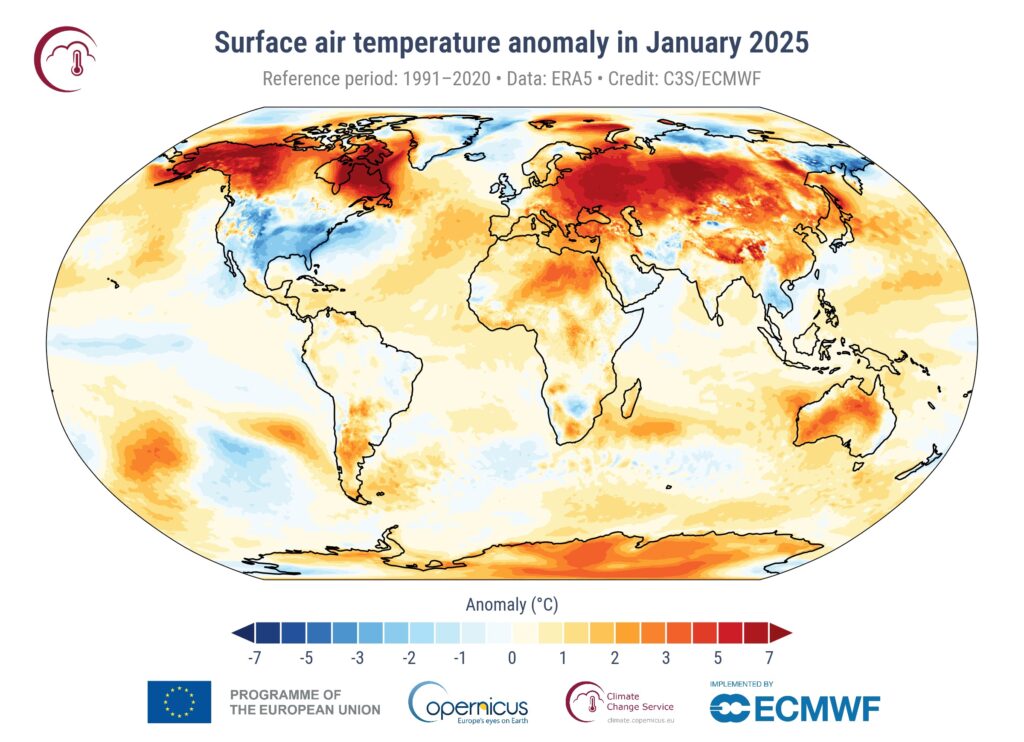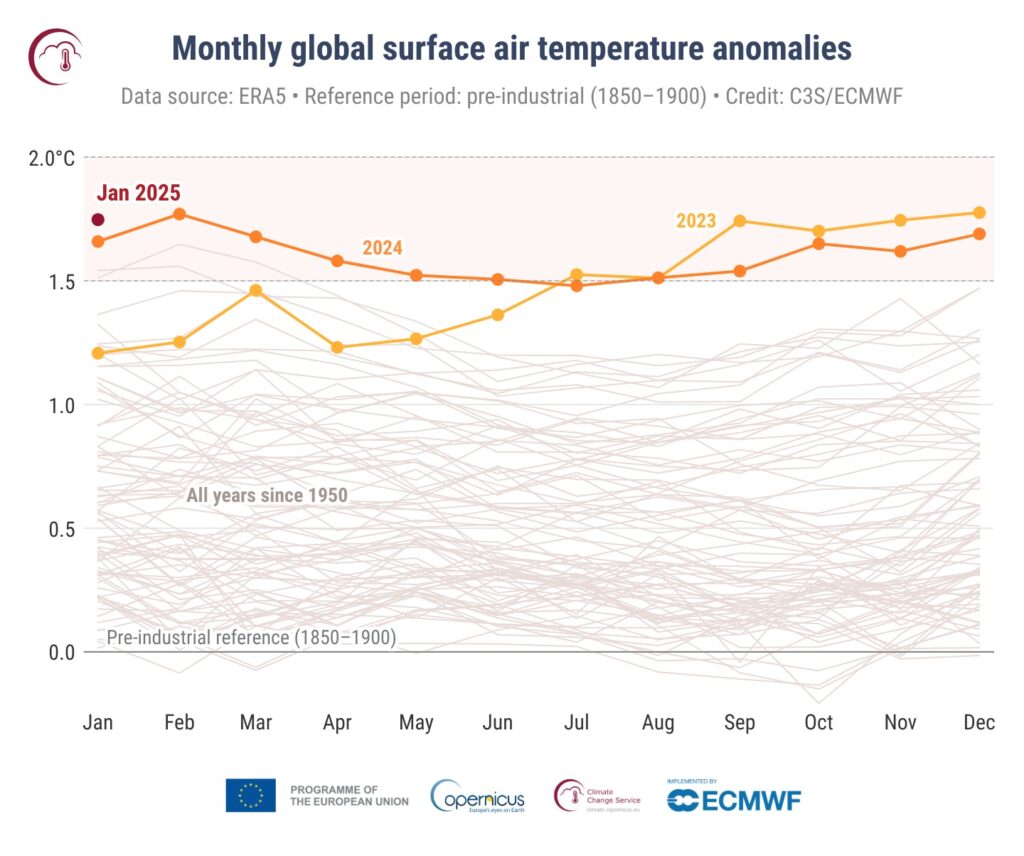Filenews 6 February 2025
January 2025 was recorded as the warmest month in measurement history, according to the European Copernicus observatory.
During this month, a new record high temperature was set, surpassing the previous one set just last year, despite the end of El Niño, which had contributed to rising temperatures in 2023-2024.
January was described as "another amazing month" as record temperatures continued for the third year in a row, despite the appearance of La Niña in the tropical Pacific Ocean. La Niña usually brings about a reduction in global temperature, unlike El Niño, explained Samantha Burgess, deputy director of the Copernicus climate change service (C3S).
According to the observatory's data, the average surface temperature of the Earth reached 13.23°C, which means that it was 1.75°C higher than pre-industrial levels. This increase is due to continued human activity, such as the extensive use of coal, oil and natural gas for power generation.
January 2025 is also the 18th of the last 19 months in which the average temperature of the Earth's surface has exceeded the limit of 1.5°C above pre-industrial levels, confirming the ongoing trend of global warming, as pointed out by the European Climate Change Observatory.

January 2025 is therefore "the eighteenth of the last nineteen months that the average air temperature on the surface of the world has exceeded pre-industrial levels by more than 1.5° Celsius", noted the European Climate Change Observatory.
In other words, it broke the 1.5° Celsius barrier, the most ambitious goal of the Paris Agreement, which was reached ten years ago, in 2015, and aimed to limit temperature rise to below 2° Celsius and continue efforts to keep it around 1.5° Celsius.
The agreement, however, referred to long-term trends. This increase must be observed for at least twenty years to consider that the threshold has been exceeded.

Taking into account this criterion, the temperature increase is about 1.3° Celsius. The Intergovernmental Panel on Climate Change (GIEC), set up by the UN, estimates that the 1.5° Celsius limit will likely be exceeded between 2030 and 2035. And this is whatever the evolution in terms of greenhouse gas emissions from humanity, which are close to their peak but have not yet begun to decrease.
Global temperatures depend heavily on those on the surface of the seas, a regulator of the global climate, covering more than 70% of the globe. And these remain at levels never recorded before April 2023.
In terms of sea surface, January 2025 ranks second, the record high temperature was maintained by January 2024 (for 0.19° Celsius).
But the Copernicus observatory points to signs of "slowing or stopping the progression towards La Niña conditions", which augurs for a smaller decline in global temperatures on average in 2025.
